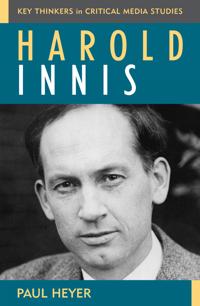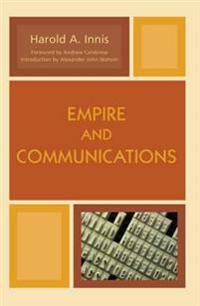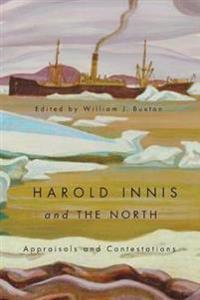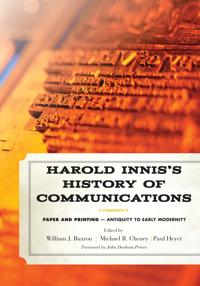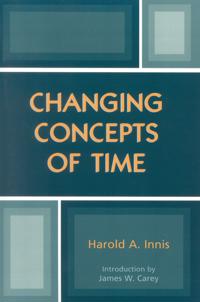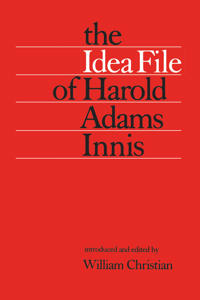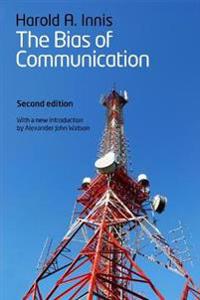Harold Innis
ISBN: 9780742524842 - UTGIVEN: 2003-10His name may not be as well known as that of his colleague and spiritual descendent, Marshall McLuhan, but Harold Innis's (1894-1952) influence on contemporary critical media and communication studies has been no less profound. This concise look at Innis's life and contributions to the communication[...]
Empire and Communications (Häftad)
avHarold Innis, Alexander John Watson
ISBN: 9780742555082 - UTGIVEN: 200703It's been said that without Harold A. Innis there could have been no Marshall McLuhan. Empire and Communications is one of Innis's most important contributions to the debate about how media influenced the development of consciousness and societies. In this foundational work, he traces humanity's mov[...]
Harold Innis and the North
ISBN: 9780773541672 - UTGIVEN: 2013-08Harold Innis is widely understood as the proponent of the "Laurentian school" of historiography, which mapped Canadian development along an East-West axis. Harold Innis and the North turns the axis North-South by examining Innis' intense and abiding interest in the North, and providing new perspecti[...]
Harold Innis's History of Communications (Inbunden)
avWilliam J. (EDT) Buxton, Michael R. (EDT) Cheney, Paul (EDT) Heyer
ISBN: 9781442243385 - UTGIVEN: 2014-12For decades, media historians have heard of Harold Innis's unpublished manuscript exploring the history of communications-but very few have had an opportunity to see it. In this volume, editors and Innis scholars William J. Buxton, Michael R. Cheney, and Paul Heyer make widely accessible, for the fi[...]
Changing Concepts of Time (Häftad)
avHarold Adams Innis
ISBN: 9780742528185 - UTGIVEN: 200402This classic book, Harold Innis's last, returns to print with a new introduction by James Carey. An elaboration of Innis's earlier theories, Changing Concepts of Time looks at then-new technological changes in communication and considers the different ways in which space and time are perceived. Inni[...]
The Bias of Communication (Häftad)
avHarold Adams Innis
ISBN: 9780802096067 - UTGIVEN: 200801One of the most influential books ever published in Canada, Harold A. Innis's The Bias of Communication has played a major part in reshaping our understanding of history, communication, and media theory. First published in 1951, this masterful collection of essays explores the relationship between a[...]
Empire and Communications (Häftad)
avHarold Adams Innis
ISBN: 9781550026627 - UTGIVEN: 200609It's been said that without Harold A. Innis there could have been no Marshall McLuhan. Empire and Communications is one of Innis's most important contributions to the debate about how media influence the development of consciousness and societies. In this seminal text, he traces humanity's movement [...]

